Baker, Josephine, born 03-06-1906 as Freda Josephine McDonald in St. Louis, Missouri,  the daughter of Carrie McDonald. Her estate identifies vaudeville drummer Eddie Carson
the daughter of Carrie McDonald. Her estate identifies vaudeville drummer Eddie Carson 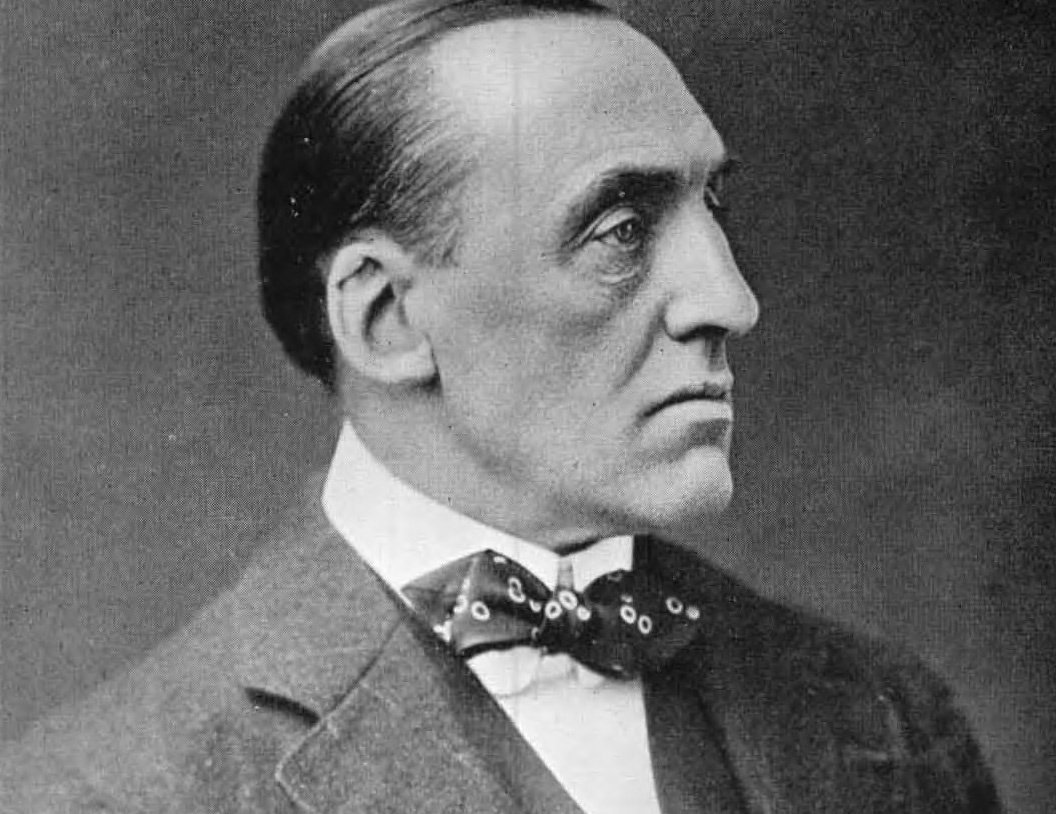 as her natural father. Her mother, Carrie, was adopted in Little Rock, Arkansas in 1886 by Richard and Elvira McDonald, both of whom were former slaves of African and Native American descent. When Baker was eight she was sent to work for a white woman who abused her, burning Baker’s hands when she put too much soap in the laundry. Baker dropped out of school at the age of 12 and lived as a street child in the slums of St. Louis, sleeping in cardboard shelters and scavenging for food in garbage cans. Her street-corner dancing
as her natural father. Her mother, Carrie, was adopted in Little Rock, Arkansas in 1886 by Richard and Elvira McDonald, both of whom were former slaves of African and Native American descent. When Baker was eight she was sent to work for a white woman who abused her, burning Baker’s hands when she put too much soap in the laundry. Baker dropped out of school at the age of 12 and lived as a street child in the slums of St. Louis, sleeping in cardboard shelters and scavenging for food in garbage cans. Her street-corner dancing 
 attracted attention and she was recruited for the St. Louis Chorus vaudeville show
attracted attention and she was recruited for the St. Louis Chorus vaudeville show 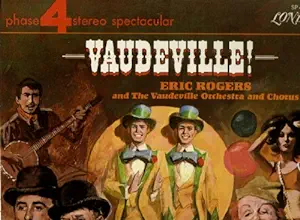 at 15. She then headed to New York City during the Harlem Renaissance, performing at the Plantation Club
at 15. She then headed to New York City during the Harlem Renaissance, performing at the Plantation Club  and in the chorus of the popular Broadway revues. She traveled to Paris, France, for a new venture. After a short while she was the most successful American entertainer working in France. Ernest Hemingway
and in the chorus of the popular Broadway revues. She traveled to Paris, France, for a new venture. After a short while she was the most successful American entertainer working in France. Ernest Hemingway 
 called her “… the most sensational woman anyone ever saw.” Upon a visit to the United States in 1935-1936, her performances received poor opening reviews for her starring role in the Ziegfeld Follies and she was replaced by Gypsy Rose Lee
called her “… the most sensational woman anyone ever saw.” Upon a visit to the United States in 1935-1936, her performances received poor opening reviews for her starring role in the Ziegfeld Follies and she was replaced by Gypsy Rose Lee
 the daughter of Carrie McDonald. Her estate identifies vaudeville drummer Eddie Carson
the daughter of Carrie McDonald. Her estate identifies vaudeville drummer Eddie Carson  as her natural father. Her mother, Carrie, was adopted in Little Rock, Arkansas in 1886 by Richard and Elvira McDonald, both of whom were former slaves of African and Native American descent. When Baker was eight she was sent to work for a white woman who abused her, burning Baker’s hands when she put too much soap in the laundry. Baker dropped out of school at the age of 12 and lived as a street child in the slums of St. Louis, sleeping in cardboard shelters and scavenging for food in garbage cans. Her street-corner dancing
as her natural father. Her mother, Carrie, was adopted in Little Rock, Arkansas in 1886 by Richard and Elvira McDonald, both of whom were former slaves of African and Native American descent. When Baker was eight she was sent to work for a white woman who abused her, burning Baker’s hands when she put too much soap in the laundry. Baker dropped out of school at the age of 12 and lived as a street child in the slums of St. Louis, sleeping in cardboard shelters and scavenging for food in garbage cans. Her street-corner dancing 
 attracted attention and she was recruited for the St. Louis Chorus vaudeville show
attracted attention and she was recruited for the St. Louis Chorus vaudeville show  at 15. She then headed to New York City during the Harlem Renaissance, performing at the Plantation Club
at 15. She then headed to New York City during the Harlem Renaissance, performing at the Plantation Club  and in the chorus of the popular Broadway revues. She traveled to Paris, France, for a new venture. After a short while she was the most successful American entertainer working in France. Ernest Hemingway
and in the chorus of the popular Broadway revues. She traveled to Paris, France, for a new venture. After a short while she was the most successful American entertainer working in France. Ernest Hemingway 
 called her “… the most sensational woman anyone ever saw.” Upon a visit to the United States in 1935-1936, her performances received poor opening reviews for her starring role in the Ziegfeld Follies and she was replaced by Gypsy Rose Lee
called her “… the most sensational woman anyone ever saw.” Upon a visit to the United States in 1935-1936, her performances received poor opening reviews for her starring role in the Ziegfeld Follies and she was replaced by Gypsy Rose Lee
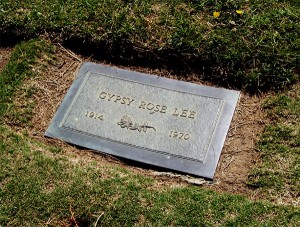 later in the run, Gypsy Lee died age 59 on 26-04-1970. Baker returned to Paris in 1937, married a Frenchman, Jean Lion,
later in the run, Gypsy Lee died age 59 on 26-04-1970. Baker returned to Paris in 1937, married a Frenchman, Jean Lion,  who was Jewish, and became a French citizen. Her affection for France was so great that when World War II broke out, she volunteered to spy for her adopted country. Baker’s agent’s brother approached her about working for the French government as an “honorable correspondent”; if she happened to hear any gossip at parties that might be of use to her adopted country, she could report it. Baker immediately agreed, since she was against the Nazi stand on race, not only because she was black but because her husband was Jewish. Her café society fame enabled her to rub shoulders with those in-the-know, from high-ranking Japanese officials to Italian bureaucrats, and report back what she heard. She attended parties at the Italian embassy without any suspicion falling on her and gathered information. She helped in the war effort in other ways, such as by sending Christmas presents to French soldiers. When the Germans invaded France, Baker left Paris and went to the Château des Milandes,
who was Jewish, and became a French citizen. Her affection for France was so great that when World War II broke out, she volunteered to spy for her adopted country. Baker’s agent’s brother approached her about working for the French government as an “honorable correspondent”; if she happened to hear any gossip at parties that might be of use to her adopted country, she could report it. Baker immediately agreed, since she was against the Nazi stand on race, not only because she was black but because her husband was Jewish. Her café society fame enabled her to rub shoulders with those in-the-know, from high-ranking Japanese officials to Italian bureaucrats, and report back what she heard. She attended parties at the Italian embassy without any suspicion falling on her and gathered information. She helped in the war effort in other ways, such as by sending Christmas presents to French soldiers. When the Germans invaded France, Baker left Paris and went to the Château des Milandes,  her home in the south of France, where she had Belgian refugees living with her and others who were eager to help the Free French
her home in the south of France, where she had Belgian refugees living with her and others who were eager to help the Free French  effort led from England by Charles De Gaulle.
effort led from England by Charles De Gaulle. 
 As an entertainer, Baker had an excuse for moving around Europe, visiting neutral nations such as Portugal, and returning to France. Baker assisted the French Resistance by smuggling secrets written in invisible ink on her sheet music. She helped mount a production in Marseille to give herself and her like-minded friends a reason for being there.
As an entertainer, Baker had an excuse for moving around Europe, visiting neutral nations such as Portugal, and returning to France. Baker assisted the French Resistance by smuggling secrets written in invisible ink on her sheet music. She helped mount a production in Marseille to give herself and her like-minded friends a reason for being there.  She helped quite a lot of people who were in danger from the Nazis get visas and passports to leave France. Later in 1941, she and her entourage went to the French colonies in North Africa; the stated reason was Baker’s health, since she really was recovering from another case of pneumonia, but the real reason was to continue helping the Resistance. From a base in Morocco, she made tours of Spain and pinned notes with the information she gathered inside her underwear, counting on her celebrity to avoid a strip search and made friends with the Pasha of Marrakesh, Thami El Glaoui
She helped quite a lot of people who were in danger from the Nazis get visas and passports to leave France. Later in 1941, she and her entourage went to the French colonies in North Africa; the stated reason was Baker’s health, since she really was recovering from another case of pneumonia, but the real reason was to continue helping the Resistance. From a base in Morocco, she made tours of Spain and pinned notes with the information she gathered inside her underwear, counting on her celebrity to avoid a strip search and made friends with the Pasha of Marrakesh, Thami El Glaoui 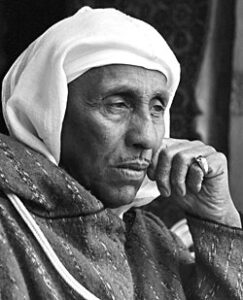 Thami had two wives: Lalla Zineb, mother of his sons Hassan and Abdessadeq and widow of his brother Si Madani; and Lalla Fadna, by whom he had a son, Mehdi, and a daughter, Khaddouj. Mehdi was killed fighting in the French forces at the Battle of Monte Cassino. T’hami also had a number of concubines, of whom he had children by three: Lalla Kamar (sons Brahim, Abdellah, Ahmed and Madani), Lalla Nadida (son Mohammed and daughter Fattouma) and Lalla Zoubida (daughter Saadia). The first two of these had originally entered Thami’s harem as musicians imported from Turkey.He died January 23-01-1956 (76-77) in Marrakesh, Morocco.
Thami had two wives: Lalla Zineb, mother of his sons Hassan and Abdessadeq and widow of his brother Si Madani; and Lalla Fadna, by whom he had a son, Mehdi, and a daughter, Khaddouj. Mehdi was killed fighting in the French forces at the Battle of Monte Cassino. T’hami also had a number of concubines, of whom he had children by three: Lalla Kamar (sons Brahim, Abdellah, Ahmed and Madani), Lalla Nadida (son Mohammed and daughter Fattouma) and Lalla Zoubida (daughter Saadia). The first two of these had originally entered Thami’s harem as musicians imported from Turkey.He died January 23-01-1956 (76-77) in Marrakesh, Morocco.El Glaoui’s support helped her through a miscarriage, the last of several and emergency hysterectomy she had to go through in 1942. After her recovery, she started touring to entertain Allied soldiers in North Africa. She even persuaded Egypt’s King Farouk Al-Awwal Muhammad Ali
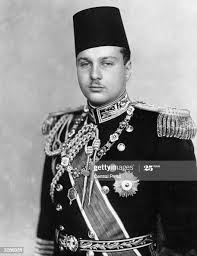
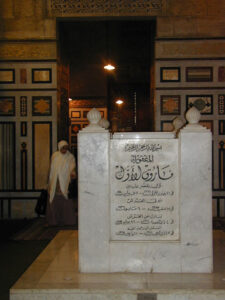 to make a public appearance at one of her concerts, a subtle indication of which side his officially neutral country leaned toward. Later, she would perform at Buchenwald for the liberated inmates who were too frail to be moved. After the war, for her underground activity, Baker received the Croix de Guerre
to make a public appearance at one of her concerts, a subtle indication of which side his officially neutral country leaned toward. Later, she would perform at Buchenwald for the liberated inmates who were too frail to be moved. After the war, for her underground activity, Baker received the Croix de Guerre 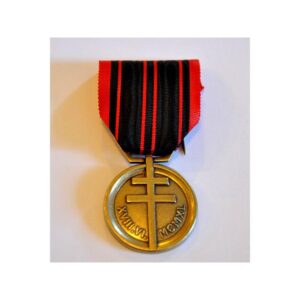 and was made a Chevalier of the Légion d’honneur
and was made a Chevalier of the Légion d’honneur 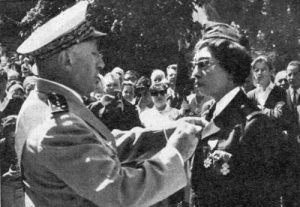
 Baker had 12 children through adoption. She bore only one child herself, still born in 1941, an incident which precipitated an emergency hysterectomy. In 1941 she had a miscarriage, after which her uterus had to be removed. Baker raised two daughters, French-born Marianne and Moroccan-born Stellina, and ten sons, Korean-born Jeannot (or Janot), Japanese-born Akio, Colombian-born Luis, Finnish-born Jari (now Jarry), French-born Jean-Claude and Noël, Israeli-born Moïse, Algerian-born Brahim, Ivorian-born Koffi, and Venezuelan-born Mara. For some time, Baker lived with her children and an enormous staff in a castle, Château de Milandes,
Baker had 12 children through adoption. She bore only one child herself, still born in 1941, an incident which precipitated an emergency hysterectomy. In 1941 she had a miscarriage, after which her uterus had to be removed. Baker raised two daughters, French-born Marianne and Moroccan-born Stellina, and ten sons, Korean-born Jeannot (or Janot), Japanese-born Akio, Colombian-born Luis, Finnish-born Jari (now Jarry), French-born Jean-Claude and Noël, Israeli-born Moïse, Algerian-born Brahim, Ivorian-born Koffi, and Venezuelan-born Mara. For some time, Baker lived with her children and an enormous staff in a castle, Château de Milandes,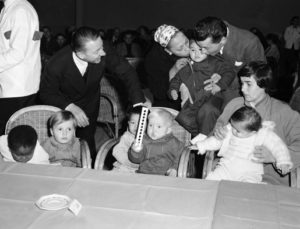
 in Dordogne, France, with her fourth husband Jo Bouillon (a French conductor). Josephine Baker was married four times. Her first marriage was to pullman Willie Wells in 1918 when she was just 13, and which was reportedly a very unhappy marriage. They divorced a short time later. She married Willie Baker
in Dordogne, France, with her fourth husband Jo Bouillon (a French conductor). Josephine Baker was married four times. Her first marriage was to pullman Willie Wells in 1918 when she was just 13, and which was reportedly a very unhappy marriage. They divorced a short time later. She married Willie Baker  in 1921 but that marriage also was short-lived. She retained that last name simply because her career began taking off during that time, and it was the name with which she became best known. In 1937 she married Frenchman Jean Lion, during which time she received French citizenship and became a permanent expatriate. She and Lion separated before he passed away. In 1947 she married French composer Jo Bouillon.
in 1921 but that marriage also was short-lived. She retained that last name simply because her career began taking off during that time, and it was the name with which she became best known. In 1937 she married Frenchman Jean Lion, during which time she received French citizenship and became a permanent expatriate. She and Lion separated before he passed away. In 1947 she married French composer Jo Bouillon.
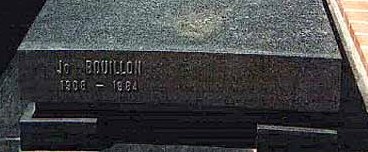 Bouillon died age 78 in 1984. They also divorced. She was later involved for a time with artist Joe Brady, but they never married.
Bouillon died age 78 in 1984. They also divorced. She was later involved for a time with artist Joe Brady, but they never married.Death and burial ground of Baker, Josephine.
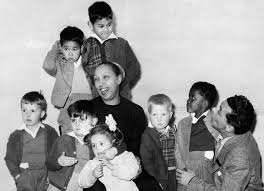
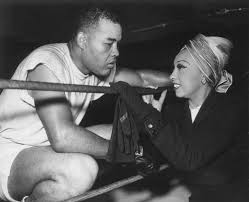
 Joe Louis confers with legendary night-club star Josephine Baker near the end of his career.
Joe Louis confers with legendary night-club star Josephine Baker near the end of his career.
 Josephine and ten of her foster children on an Amsterdam canal boat (1964).
Josephine and ten of her foster children on an Amsterdam canal boat (1964).Josephine Baker was bisexual and on 08- 04-1975, Baker starred in a retrospective revue at the Bobino -Salpêtrière Hospital, where she died, aged 68, on 12-04-1975. Her funeral was held at in Paris, celebrating her 50 years in show business. Four days later, Baker was found lying peacefully in her bed surrounded by newspapers with glowing reviews of her performance. A declining career combined with a growing family had over stressed her health and her finances.
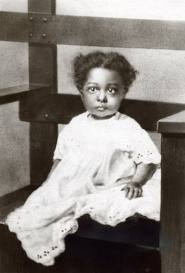
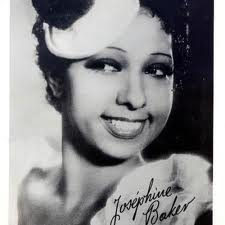

 She was in a coma after suffering a cerebral hemorrhage in bed in her home Château des Milandes in Castelnaud-la-Chapelle in de Dordogne.
She was in a coma after suffering a cerebral hemorrhage in bed in her home Château des Milandes in Castelnaud-la-Chapelle in de Dordogne.  She was taken to PitiéL’ Église de la Madeleine. The first American-born woman to receive full French military honors at her funeral,
She was taken to PitiéL’ Église de la Madeleine. The first American-born woman to receive full French military honors at her funeral,  Baker locked up the streets of Paris one last time. She was interred at the Cimetière de Monaco in Monte Carlo.
Baker locked up the streets of Paris one last time. She was interred at the Cimetière de Monaco in Monte Carlo.Josephine Baker was bisexual. Married to several men, she also maintained relationships with women throughout her adult life. However, this part of her personality has never been publicly addressed. Her famous lovers included the French writer Sidonie-Gabrielle Colette 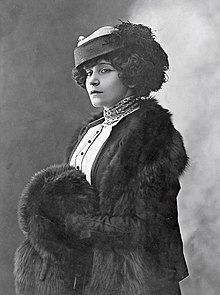 and Frida Kahlo.
and Frida Kahlo. 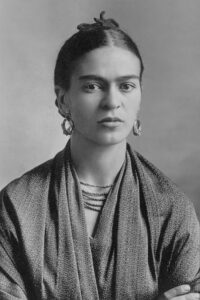 One of her children, Jean-Claude Baker, also mentions Clara Smith
One of her children, Jean-Claude Baker, also mentions Clara Smith  , Evelyn Sheppard, Bessie Allison and Mildred Smallwood
, Evelyn Sheppard, Bessie Allison and Mildred Smallwood 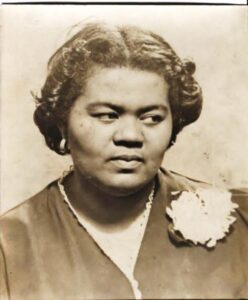 in the biography of his mother, all of whom she met on the circuit during her first years on stage in the United States. Despite her own bisexuality and her commitment against racism (particularly through her participation in certain actions of the African-American civil rights movement), she herself appeared to have homophobic tendencies. For example, she sent one of her sons, Jarry Bouillon Baker, to live with his father because he was homosexual; according to him, she feared he would “infect” his brothers.
in the biography of his mother, all of whom she met on the circuit during her first years on stage in the United States. Despite her own bisexuality and her commitment against racism (particularly through her participation in certain actions of the African-American civil rights movement), she herself appeared to have homophobic tendencies. For example, she sent one of her sons, Jarry Bouillon Baker, to live with his father because he was homosexual; according to him, she feared he would “infect” his brothers.
 and Frida Kahlo.
and Frida Kahlo.  One of her children, Jean-Claude Baker, also mentions Clara Smith
One of her children, Jean-Claude Baker, also mentions Clara Smith  , Evelyn Sheppard, Bessie Allison and Mildred Smallwood
, Evelyn Sheppard, Bessie Allison and Mildred Smallwood  in the biography of his mother, all of whom she met on the circuit during her first years on stage in the United States. Despite her own bisexuality and her commitment against racism (particularly through her participation in certain actions of the African-American civil rights movement), she herself appeared to have homophobic tendencies. For example, she sent one of her sons, Jarry Bouillon Baker, to live with his father because he was homosexual; according to him, she feared he would “infect” his brothers.
in the biography of his mother, all of whom she met on the circuit during her first years on stage in the United States. Despite her own bisexuality and her commitment against racism (particularly through her participation in certain actions of the African-American civil rights movement), she herself appeared to have homophobic tendencies. For example, she sent one of her sons, Jarry Bouillon Baker, to live with his father because he was homosexual; according to him, she feared he would “infect” his brothers.






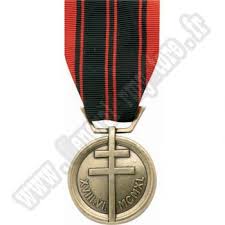

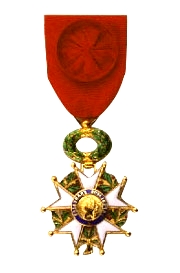











Leave a Reply